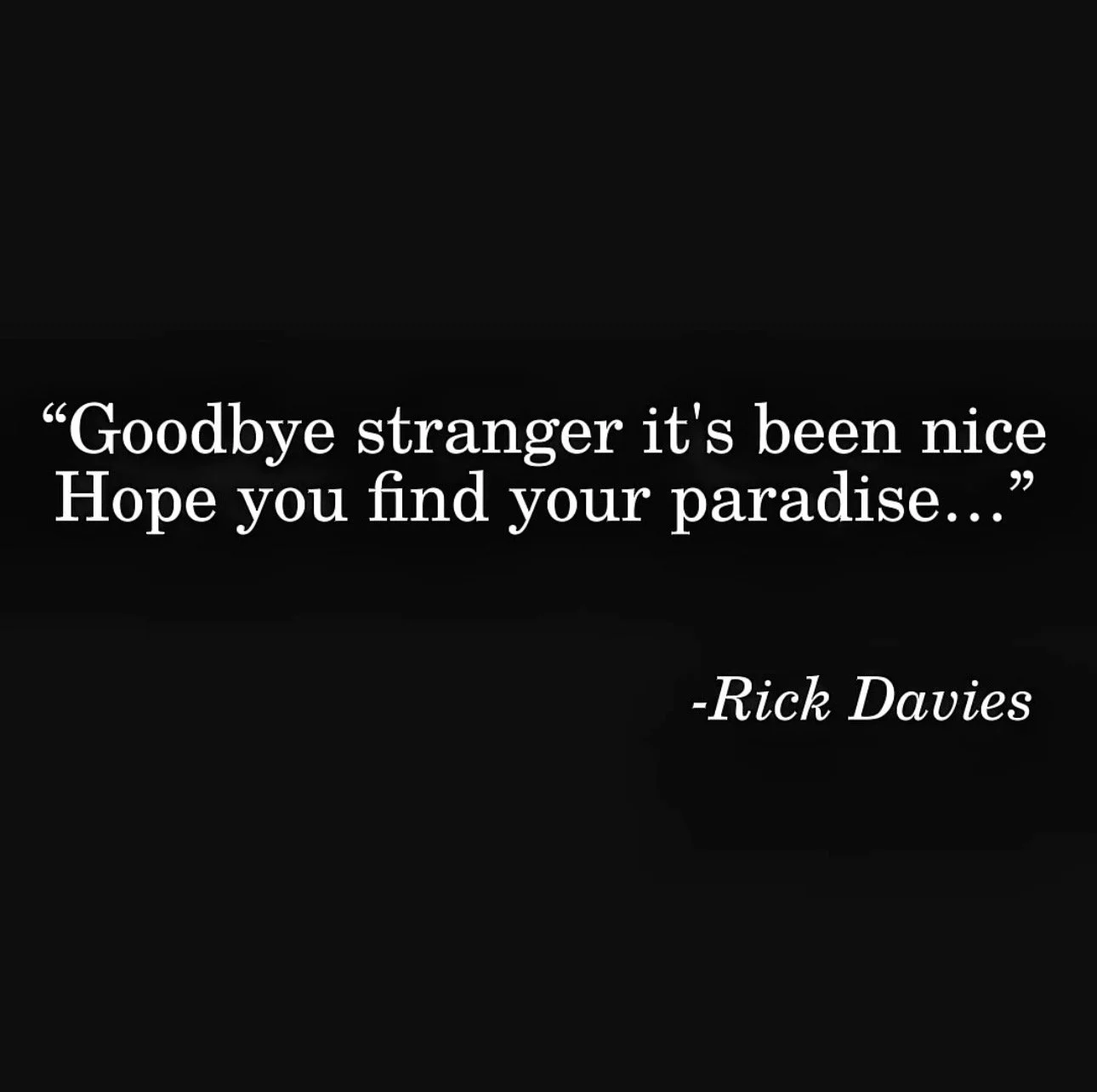Rick Davies, founder, lead singer and songwriter of Supertramp, passed away on Saturday, September 6th at the age of 81 after battling Multiple Myeloma for over 10 years.
Born in Swindon, England in 1944, Rick’s love of music began in his childhood listening to Gene Krupa’s “Drummin’ Man” which grew into a lifelong passion for jazz, blues and rock’n’roll. As co-writer, along with partner Roger Hodgson, he was the voice and pianist behind Supertramp’s most iconic songs, leaving an indelible mark on rock music history. His soulful vocals and unmistakable touch on the Wurlitzer became the heartbeat of the bands’ sound.
Beyond the stage, Rick was known for his warmth, resilience, and devotion to his wife Sue, with whom he shared over five decades. After facing serious health challenges, which kept him unable to continue touring as Supertramp, he enjoyed performing with his hometown buds as Ricky and the Rockets.
Rick’s music and legacy continue to inspire many and bears testament to the fact that great songs never die, they live on.
Donations in Rick’s memory can be made to Weill Cornell Medical College; memo: J. Michaeli Multiple Myeloma Fund, in memory of Rick Davies, addressed to Weill Cornell Medicine Office of External Affairs, P.O. Box 22497, New York, NY 10087-2497.
Give online by clicking here. Then under “Gift Details” choose “Other Fund” and fill in: J. Michaeli Multiple Myeloma Fund; under “Gift Options” indicate “This gift is in memory of – Rick Davies”

